Thank you for your interest in this story
To continue reading this article, subscribe to the Stray Ferret for as little as £1 a week
Already a subscriber? Log in here.
27
Dec
9: A (land) slippery year for A59 at Kex Gill
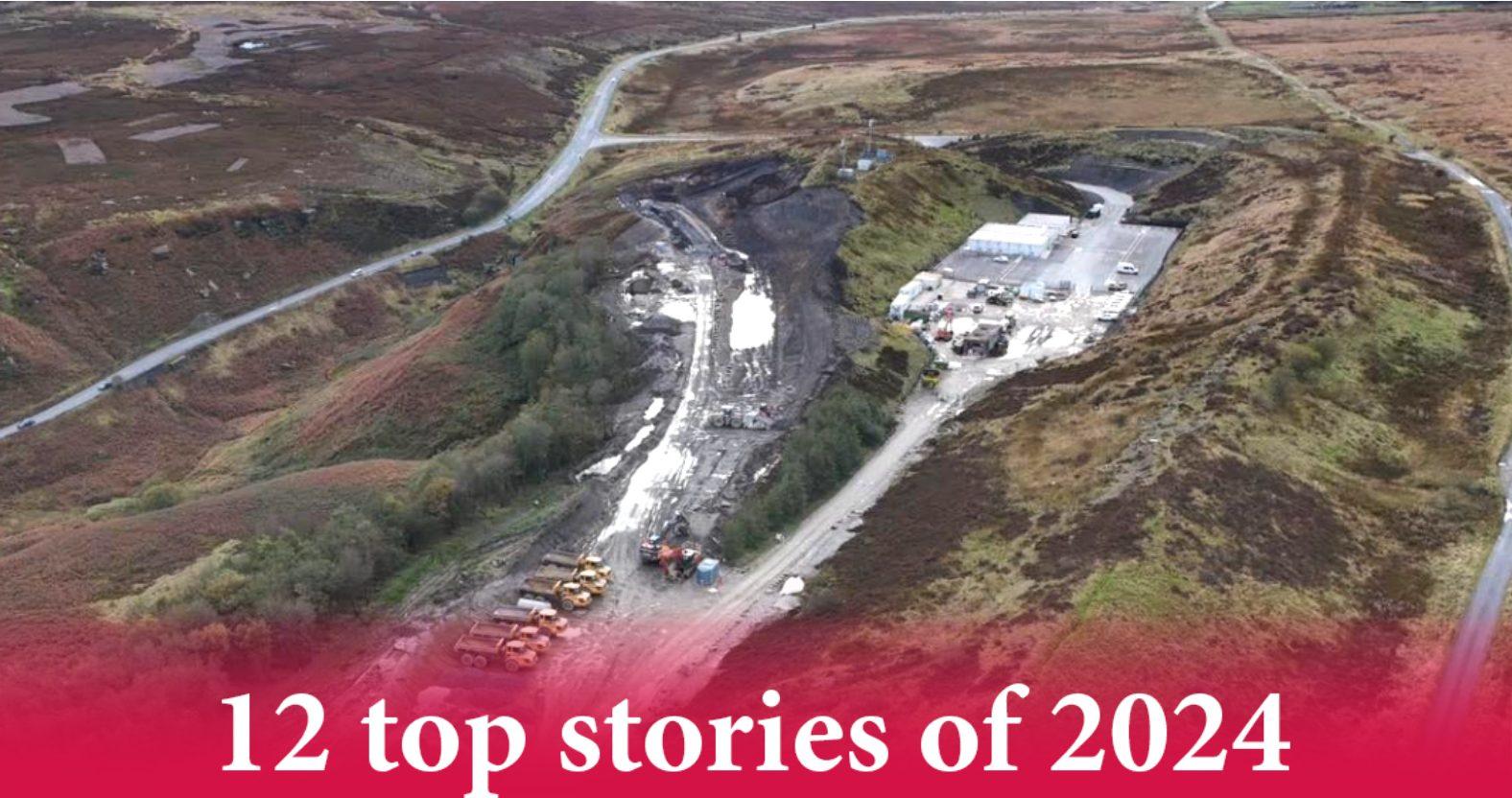
In this article, which is part of a series on the 12 stories in the Harrogate district that shaped 2024, we're looking back at the A59 at Kex Gill.
The realignment of the A59 at Kex Gill is North Yorkshire Council’s biggest ever capital scheme. But the road's five-month closure also became local residents' and business owners' biggest headache this year.
The A59 connects Harrogate and Skipton and is one of England’s main east-to-west links. But it has suffered 14 landslips in the last 20 years, which prompted the £68.8 million project.
The four-mile alignment is being funded predominantly by the Department for Transport, which is paying £56.1 million towards the project, while the remaining £12.7 million is being footed by the council.
But the road closed suddenly following the latest landslip on February 2. What was originally described as a “small crack” on the road by the council turned into a five-month closure and multi-million-pound repair process.
The road didn't reopen until June 22, leaving motorists with a lengthy diversion, and a sheet piling project to reinforce the road cost the taxpayer a further £2.8 million.
Work to fix the road took more than a month to start, which the council attributed to heavy rainfall. The authority blamed the landslip on bad weather, but local people felt it was the major project at Kex Gill that was to blame.

Alistair Young at Kex Gill.
One of those people was Alistair Young, who lives in Blubberhouses. He claimed the landslip was due to the realignment scheme – not adverse weather.
Mr Young also alleged some 20,000 trees had been felled as part of the work, which he felt would have destabilised the banks of the valley leading down the road.
When the Stray Ferret visited Mr Young at the time, he said:
There has never been a landslip down here where we live.
If you remove a wood on the side of a valley, divert a beck and then condense the land with thousands of tonnes of hardcore it is no surprise when a crack appears.
For them [the council] to say it's because of heavy rainfall is absolute nonsense.
He also said it was disingenuous of the council to blame a landslip and heavy rain rather than its own major scheme, and questioned whether the closure was necessary to all non-works traffic.
Mr Young added the council’s lack of communication and transparency at the time was “appalling”.
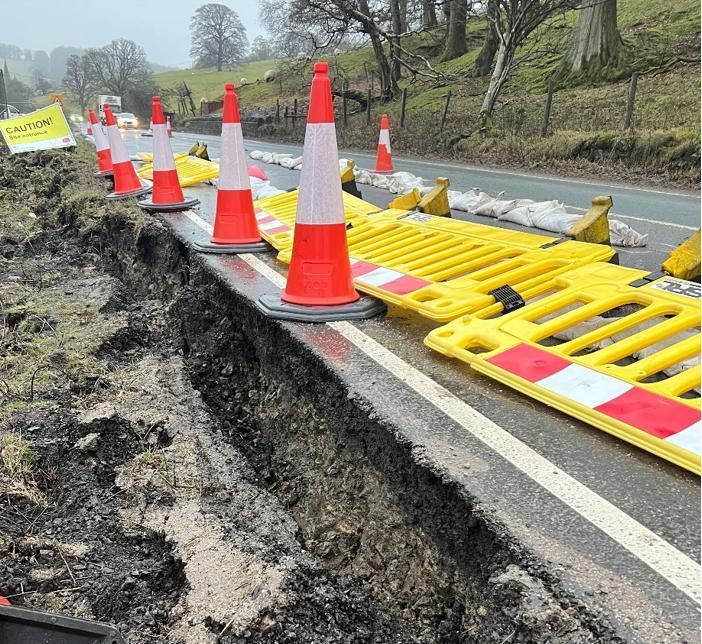
Kex Gill movement. Credit - North Yorkshire Council
Closure ‘absolutely murdering us’, business owner said
Mark Trickett, owner of the Outside Inn coffee shop at Menwith Hill, told the Stray Ferret the A59 closure meant turnover had fallen to a third of its usual level due to the reduction in passing trade.
He said at the time:
We were going really well, and this is absolutely murdering us.
The Tricketts also operate Whittams Motorhomes at the site. They employ 23 part-time staff and had to let two go because of declining trade.
Mr Trickett called on the council to provide financial support to companies whose futures were at risk at the time.
He also believed the major road realignment was to blame for the closure.
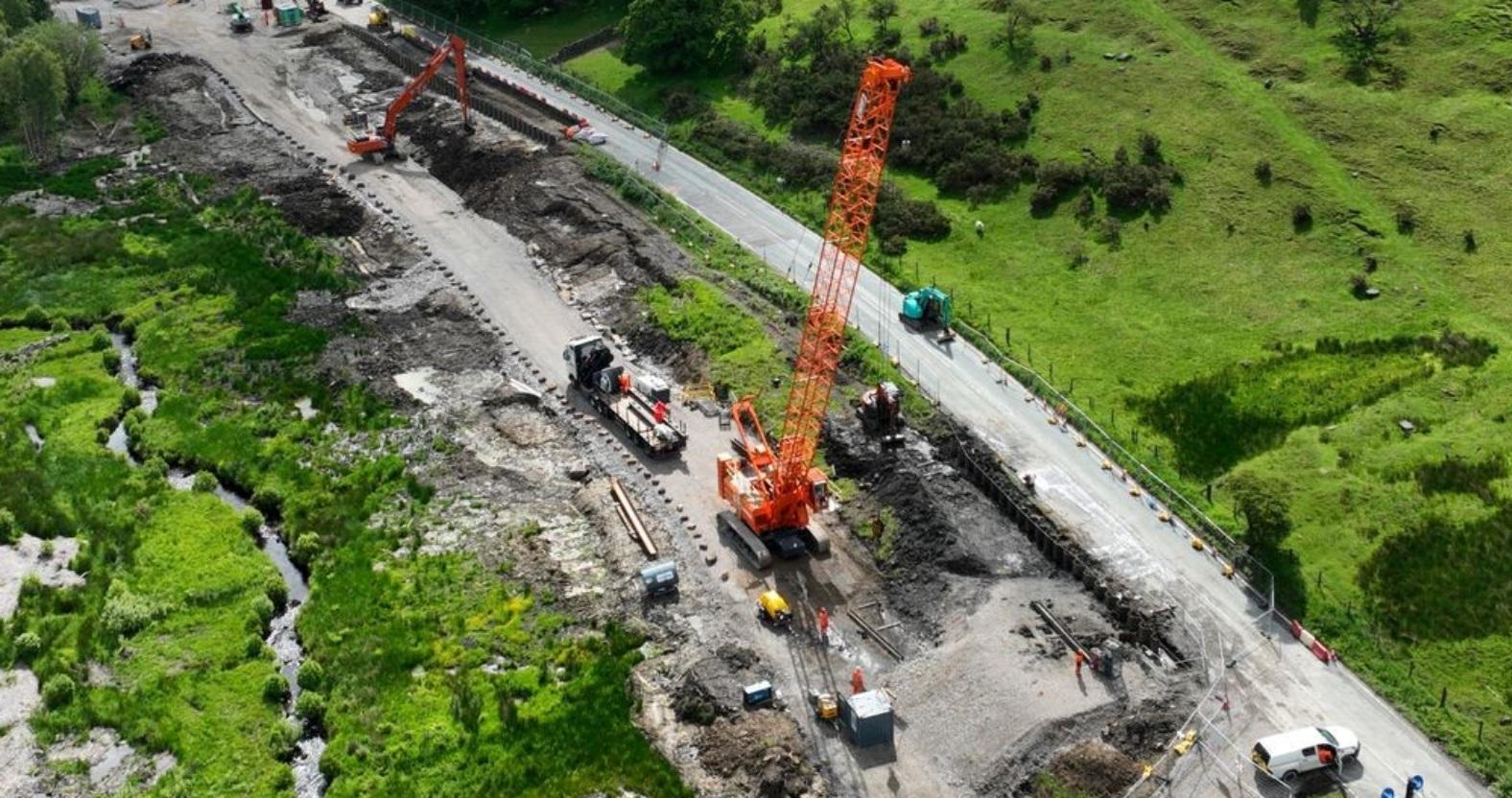
Repairs taking place at Kex Gill this year.
The Stray Ferret put the claims, including that 20,000 trees had been lost, to the council at the time.
The council did not provide a figure on how many trees had been felled due to the work.
Instead, the council’s corporate director of environment, Karl Battersby, said the authority was doing all it could to repair the road as quickly as possible.
Mr Battersby reiterated the reason for the closure was a landslip and adverse weather conditions, and denied the £68.8 million scheme was to blame.
“We have no evidence to say works that they’ve done have caused this”, he said.
Latest update
The latest update on the £68.8 million scheme came on December 12, when the project leader said the A59 should never suffer any more landslips at Kex Gill.
Richard Binks, head of major projects and infrastructure at North Yorkshire Council, told a Skipton and Ripon area committee the road has been “futureproofed” against landslips.
The scheme affects a 27.8-hectare site, which is the equivalent of about 69 football pitches. Alongside building a new road with a climbing lane, it involves creating 12 new structures, including culverts, walls and an underpass.
Irish building contractor Sisk, which is carrying out the work, has taken down 3.3 kilometres of dry-stone walls and built 4.3 kilometres of new dry-stone walls to accommodate the scheme.
Hall Beck is being diverted, and 12,000 shrubs and trees are being planted.
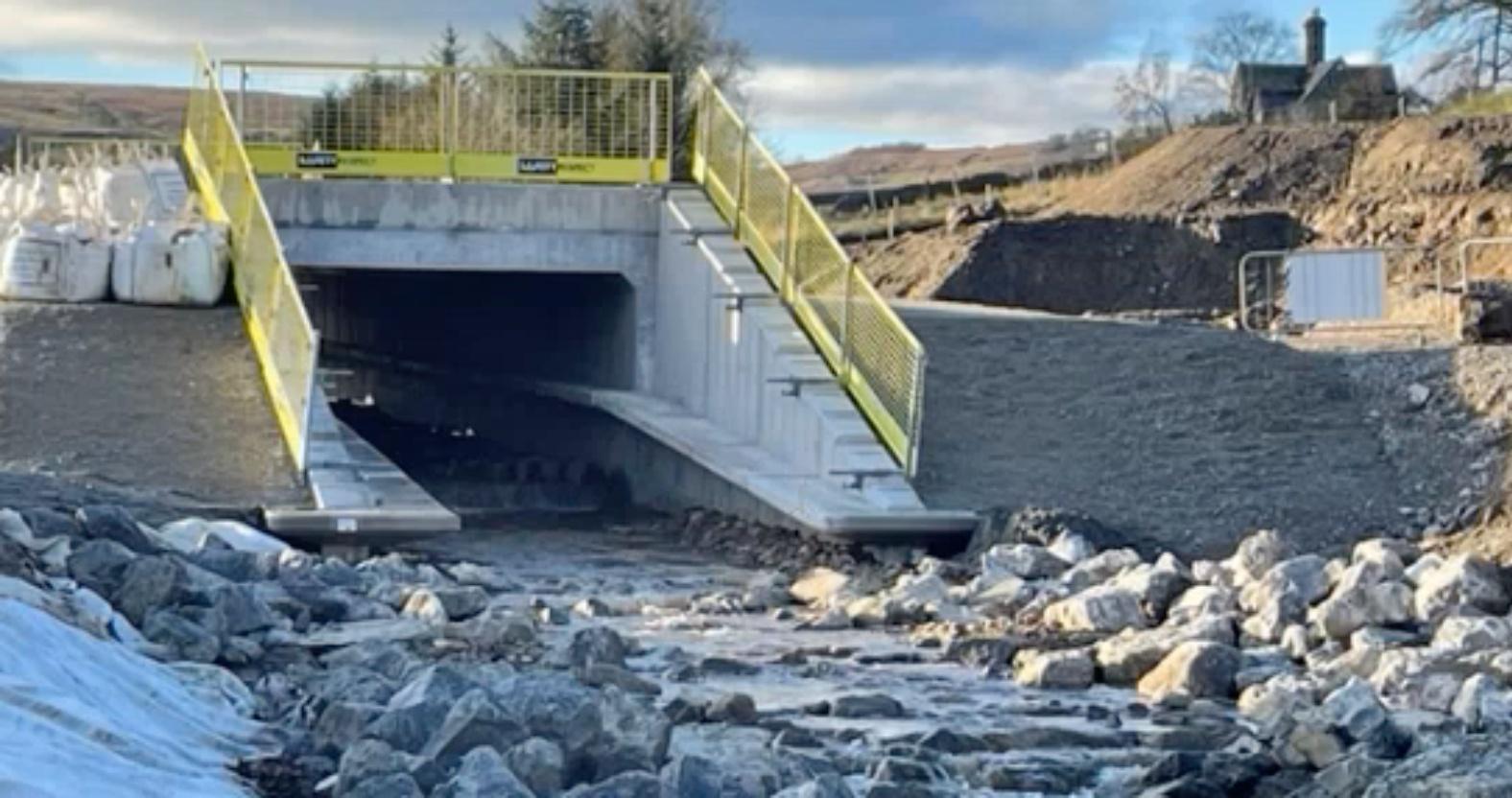
The culvert for the diverted Hall Beck.
Mr Binks told councillors the project is “massive”.
He said 370,000 cubic metres of land were being excavated, which required 40,000 vehicle movements in haulage.
Due to new bridleways being created, and the existing road being turned into moorland, Mr Binks also said "you will never know it was there".
When committee chair Richard Foster asked Mr Binks if the new road will ever be affected by landslips, the project chief responded:
No. As an engineer, it should not slip again. It’s been designed to be slip-proof, shall we say. That’s the reason for doing it. I can assure you on that one, unless something we don’t know is going to happen; it’s designed to be futureproofed.
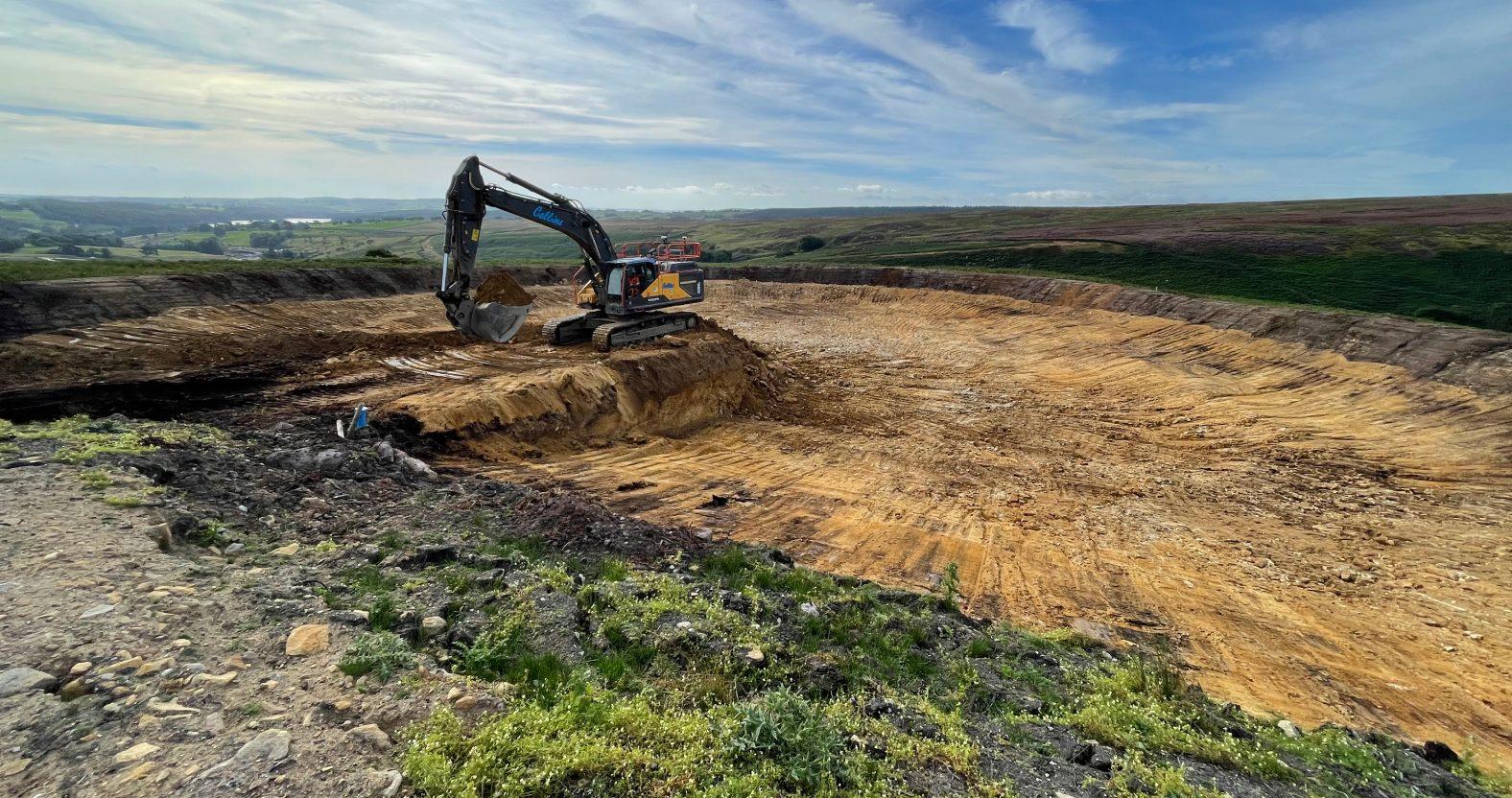
A new drainage pond being created for surface water and a new wetland being created at Kex Gill.
Mr Binks told the meeting there were no plans to close the road entirely during the work, except for a couple of days of resurfacing when the new road ties in with the current A59 at the very end of the work.
Traffic lights may be required at times, however. The project is set to be completed by June 2026.
0